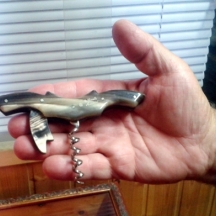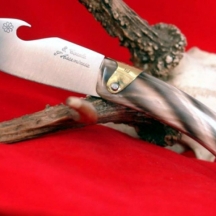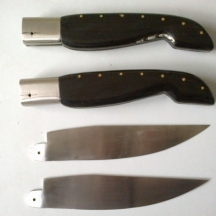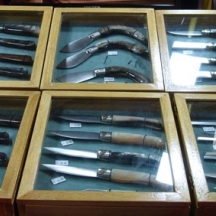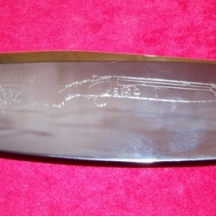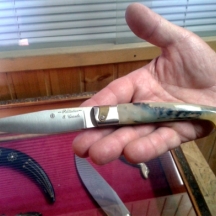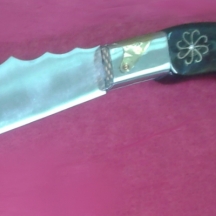Assemini Creates: Efisio Casula, a creator of knives
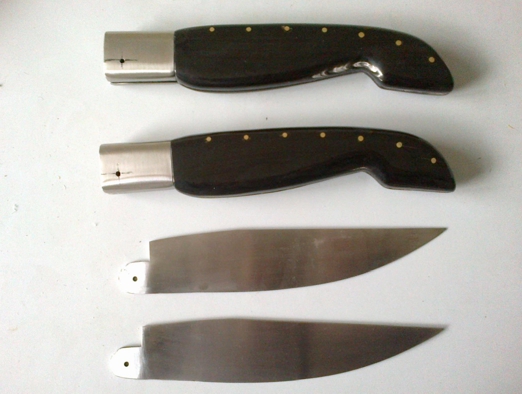
From three to eight hours for the realization
Sometimes, traditions of a nation are linked to the most incredible artistic peculiarities, those that we would not think that can represent a part of a "mental" heritage of a community. Indeed, knowing that a knife, usually belonging to the masculine field, can become a thing very appreciated by the feminine people, could cause wonder. But, actually, a situation as such can happen in different Countries, as France, where women are the most evaluator of knives and they spread the culture to their daughters, too. Travelling all over the world and spreading his art, Efisio Casula, a creator of knives, had the opportunity of knowing social realities to which he was not used to.
Born with a personal skill and grown up with an extraordinary passion for the art of knives, when he was thirteen years old, Efisio Casula could buy his first knife. It was a thing made by hand, long eight centimeters and built with a horn of an ox. The cost of the knife, 35000 Lires, was an index of total saving and sacrifice by a child who wanted that thing such that he had conserved day by day a quantity of money for buying a product that, in the future, would have represented the core of his work. During the time, he began building some daggers for simulating the fights done in a gym for the drills of martial arts.
Progressively, years spent and he became a teenager and an adult boy. The final decision about a transformation of his hobby in a true job, encouraged him towards the curiosity for other arts and towards the awareness according to which it was important to learn every artistic activities for increasing his cultural and professional baggage. Meanwhile, his life spent between satisfactions and achievements of goals. His customers increased much more and lots of people began appreciating his works, spreading the voice and making many buyers come. Mistakes, too, represented a lesson of life and the comparison with other artisans was useful for him for updating and improving.
His workshop became also a school for future creators of knives. From eighteen-year-old to seventyfive-year-old pupils. During the first lessons explained by the teacher, the first reaction of the pupils is a big wonder, because they observe as everything is made by hand and as their teacher is fast during the implementation. Normally, the manufacturing of a knife involves an average duration of eight hours. But, Efisio Casula is able to build also three small knives in eight hours or a bigger knife in only three hours. During a week, he realized 220 blades. He can create a knife totally in an only time or he can involve a period to the creation of blades and, in a second time, he can realize grips. The experience as a self-educated, passion and determination guarantee great results. He can begin from the manufacturing of the blade or from that of the grip indifferently. The important thing is that everything coincides, without flaws and lacks of concentration.
The most requested kinds of knives are those traditional, the pattadese in primis. But, currently, there is an increase of innovative knives and customers are attracted by the information about the purpose and the use of the knife chosen by them. The most common etching in the grip is the buyer’s name. As an alternative, Efisio Casula advises some drawings made by him, that are appreciated by the customers. There are also works requested by important people and Sardinian politicians, who are attracted by this artist’s fame and skill.
When an art is appreciated and not put in a corner, its spread is guaranteed. But, when society does not accept with enthusiasm an artistic and handcrafted work, everything is destroyed and it loses its value. Luckily, the manufacturing of knives represents a job still operative and constantly growing. The continuous development all over the world makes this job an activity considered as useful and not only important aesthetically.
